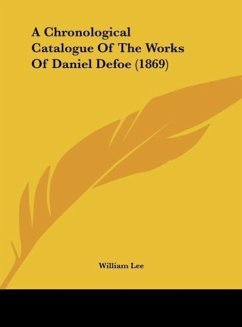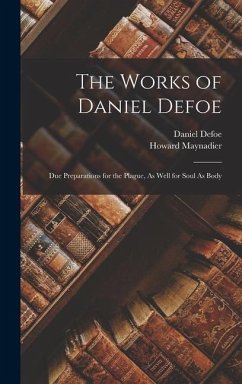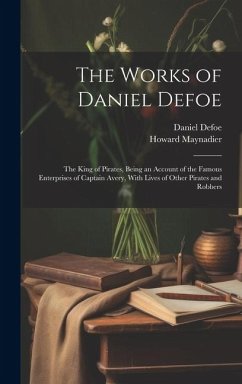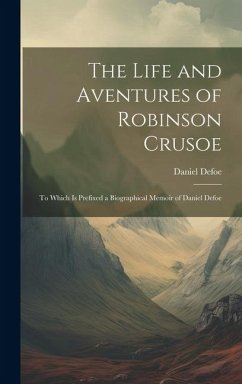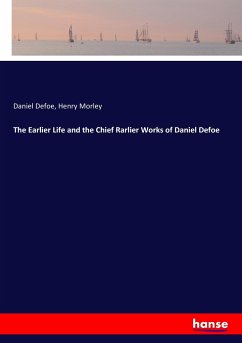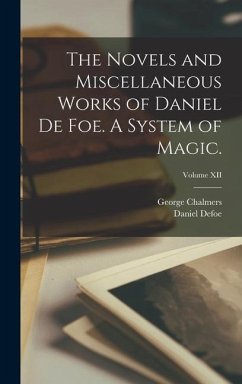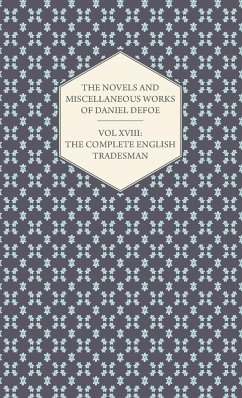
The Novels and Miscellaneous Works of Daniel Defoe - Vol. XVIII
The Complete English Tradesman

PAYBACK Punkte
16 °P sammeln!
This volume contains Daniel Defoe's 1898 guide to trading, "The Complete English Tradesman". A comprehensive and interesting guide, it will appeal to those with an interest in late-nineteenth century English trading, and is not to be missed by collectors of Defoe's work. The chapters of this volume include: "The Tradesman's Writing Letters", "The Trading Style", "Of The Tradesman Acquiring Himself with all Business in General", "Diligence and Application in Business", "Over-Trading", etcetera. Daniel Defoe (1660 - 1731) was an English writer, journalist, trader, and spy. Some of his most famou...
This volume contains Daniel Defoe's 1898 guide to trading, "The Complete English Tradesman". A comprehensive and interesting guide, it will appeal to those with an interest in late-nineteenth century English trading, and is not to be missed by collectors of Defoe's work. The chapters of this volume include: "The Tradesman's Writing Letters", "The Trading Style", "Of The Tradesman Acquiring Himself with all Business in General", "Diligence and Application in Business", "Over-Trading", etcetera. Daniel Defoe (1660 - 1731) was an English writer, journalist, trader, and spy. Some of his most famous works include "Robinson Crusoe" (1719), and "Roxana: The Fortunate Mistress" (1724). Many vintage texts such as this are increasingly scarce and expensive, and it is with this in mind that we are republishing this book now, in an affordable, high-quality, modern edition. It comes complete with a specially commissioned biography of the author.





